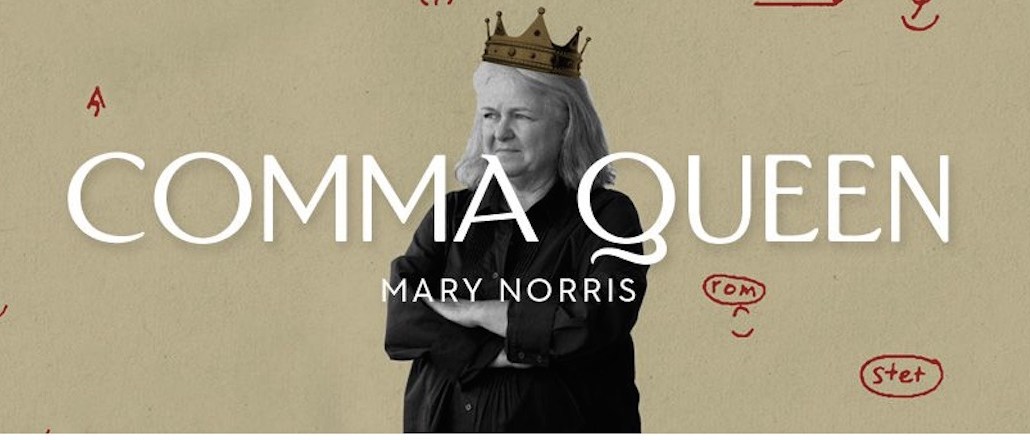Secure your place at the Digiday Media Buying Summit in Nashville, March 2-4

Even for Mary Norris, a copy editor at the New Yorker for the past three decades, the idea of producing a web series focusing on grammar was a dull idea.
“This is the most boring thing ever and this will be a test to see if there’s any future to it, “ she laughed after shooting a pilot for “Comma Queen” last year, a video series that focuses on the complexities of the English language and New Yorker house style.
Following some major editing, turns out there’s an appetite for it.
The pilot, which ran several minutes and has never seen the light of day — either by Norris or the internet, was reformatted to run less than a few minutes. In its “snappier” version, Norris deciphers the differences between that and which, the complicated issue of prepositions and, obviously, decodes serial commas.
“The point is we made them short, that was the trick,” Norris told Digiday. “I don’t write a script, and part of the reason is that I hope the shoot will be canceled and I don’t want to waste my time preparing if the shoot is canceled,” she laughed. “I like to give it spontaneity.”
The New Yorker doesn’t break out individual viewership numbers for video views on its website, but the videos rack up between 50,000 and 250,000 views on the publisher’s Facebook page, fostering a loyal following likely drawn to her warm personality.
In total, there are 25 episodes of “Comma Queen,” with plans for more. Norris pulls examples that she finds while copy editing articles from the issue and steers away from controversial content, like politics or sex.
“I’m always struggling to find examples because I have to show the difference between what’s wrong and how to make it right,” she said. “I don’t like making up examples because there’s so much out there.” Writers’ mistakes aren’t pointed out by their name, but Norris admitted that they have become “wary” of her.
The idea of the video series originated from a similar column she used to write for the New Yorker’s website that she scrapped because the publishers of her book, “Between You & Me: Confessions of a Comma Queen,” wanted her to save the material for that.
After the book was finished last year, New Yorker editor-in-chief David Remnick pushed her to host the web series after seeing her personality on display during a presentation at a New Yorker Festival about her book. “She’s a super duper copy editor, she’s very funny and extremely smart about language,” he told Digiday, using the Yiddish word “heimish,” which means warm, cozy and familiar, to describe her.
Remnick described her medium, language, as “the greatest human invention.”
“Language is the one technology that we all use,” he said. “It’s what we live in; it’s what we dream in, read and communicate in. It’s what we all have.”
Norris echoed that, explaining that the New Yorker’s reputation for protecting its style guide is why people tune in. “It’s just a list of words,” she said. “But maybe because there’s a bit of a cult that has grown up around the New Yorker, so people are intensely curious about our style.”
Still, Norris remains shocked that people watch her videos. “I’m really amazed that people have taken to these videos,” she said. “There’s an appetite for learning about punctuation that’s gratifying to me, and I’ve even inspired some people to become copy editors, which is something I haven’t set out to do.”
More in Media

Media Briefing: Turning scraped content into paid assets — Amazon and Microsoft build AI marketplaces
Amazon plans an AI content marketplace to join Microsoft’s efforts and pay publishers — but it relies on AI com stop scraping for free.

Overheard at the Digiday AI Marketing Strategies event
Marketers, brands, and tech companies chat in-person at Digiday’s AI Marketing Strategies event about internal friction, how best to use AI tools, and more.

Digiday+ Research: Dow Jones, Business Insider and other publishers on AI-driven search
This report explores how publishers are navigating search as AI reshapes how people access information and how publishers monetize content.





